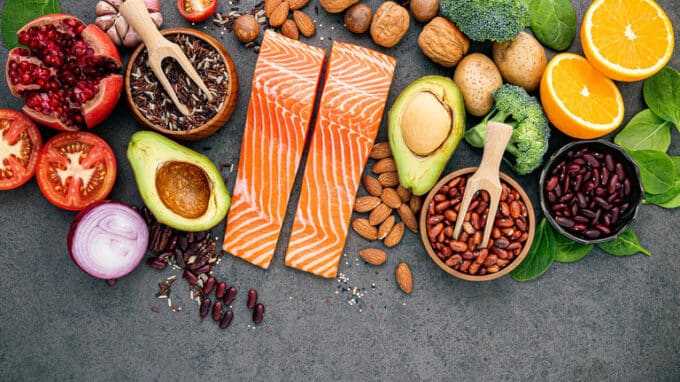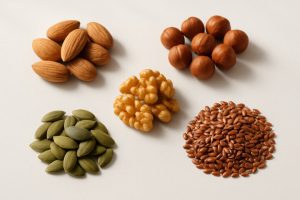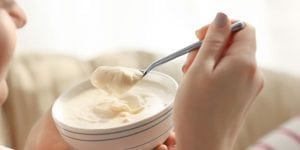Nutrition plays a crucial role in fertility for both women and men. A balanced, nutrient-rich diet can not only improve hormone balance, but also promote egg quality, sperm health, and overall reproductive capacity. Here are the most important foods that have been scientifically linked to improved fertility:
Green Leafy Vegetables (e.g., Spinach, Kale, Arugula)
- Why it helps: Rich in folic acid, a B vitamin that is important for healthy cell division and implantation. Folic acid deficiency can interfere with ovulation.
- Tip: Best lightly steamed or in a smoothie.
Berries (Blueberries, Raspberries, Strawberries)
- Why: Full of antioxidants that fight free radicals, which can damage egg and sperm cells.
- Good to know: Men also benefit—antioxidants improve sperm quality.
Nuts & Seeds (Walnuts, Almonds, Flax Seeds, Chia Seeds)
- Why: Good source of omega-3 fatty acids, vitamin E, zinc, and selenium—all important for hormone production and sperm formation.
- Recommendation: A small handful per day.
Eggs
- Why: Contain choline, which plays an important role in embryo development, as well as high-quality protein and vitamin D.
- Particularly helpful: For women with irregular cycles or low AMH levels (egg reserve).
Avocado
- Why: Packed with healthy fats that help regulate hormone balance.
- Tip: Add a little lemon juice and olive oil – twice as healthy!
Fatty Fish (e.g., Salmon, Mackerel, Sardines)
- Why: Contains omega-3 fatty acids, vitamin D, and iodine – all important for egg maturation and sperm production.
- Note: Make sure you choose fish that is low in pollutants (organic or sustainably caught).
Whole Grains
- Why: They stabilize blood sugar, which is especially important for women with PCOS (polycystic ovary syndrome).
- Good sources: Oatmeal, quinoa, brown rice, whole grain bread.
Legumes (Lentils, Chickpeas, Black Beans)
- Why: Rich in plant-based protein, iron, and folic acid—all key nutrients for fertility.
- Studies show that women who eat more plant-based protein are less likely to have problems with ovulation.
Low-Fat Dairy Products
- Why: Contain calcium and vitamin D – important for hormone balance and the uterine lining.
- Alternative: Plant-based milk with added calcium and vitamin D can also be beneficial.
Olive Oil (Extra virgin)
- Why: Promotes blood flow to the ovaries and protects against cell damage.
- Best combined with: Salads, cooked vegetables, or whole grain pasta.
What You Should Avoid:
- Highly processed foods with trans fats (e.g., chips, fast food) – disrupt hormone balance and promote inflammation
- Excessive sugar (can negatively affect eggs, sperm, and hormone balance)
- Too much caffeine (>300 mg daily, approx. 3 cups of coffee) – can impair blood flow to the uterus and sperm cells
- Alcohol – can disrupt ovulation and implantation in women and sperm quality in men
- Red meat in large quantities (negatively affects sperm)
- Plastic packaging & BPA – hormone-like substances can affect the cycle
Conclusion
A fertility-boosting diet is no guarantee of pregnancy, but it can significantly improve the conditions for it. It strengthens the body, optimizes hormone balance, and ensures better egg and sperm quality. Extra tip: Ideally, start with these dietary steps at least 3 months before you plan to conceive – this gives eggs and sperm time to develop under better conditions.







